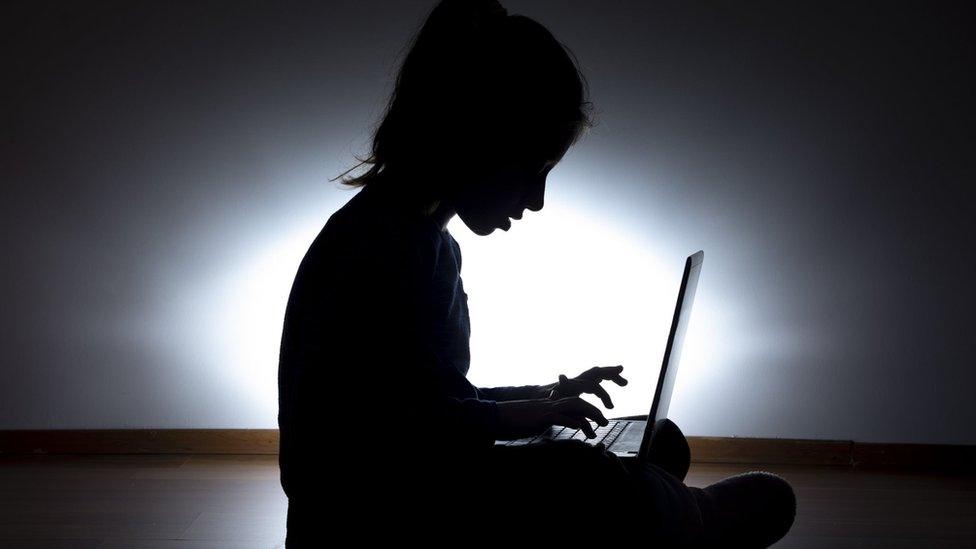Tech firms face fines for harmful videos from regulator Ofcom
- Published
- comments

The government is considering giving powers to fine video-sharing apps and websites to the UK's media regulator.
The proposal would see Ofcom able to impose multi-million pound fines if it judges the platforms have failed to prevent youngsters seeing pornography, violence and other harmful material.
The regulator would take charge of the matter from 19 September 2020.
The move is designed to meet the UK's obligations to the EU but may not be required if Brexit occurs in October.
Even then, it would only be an interim measure until a separate online harms regulator was appointed at a later date.
"The implementation of the AVMSD [Audiovisual Media Services Directive] is required as part of the United Kingdom's obligations arising from its membership of the European Union and until the UK formally leaves the European Union all of its obligations remain in force," said a spokesman for the Department for Digital, Culture, Media and Sport.
"If the UK leaves the European Union without a deal, we will not be bound to transpose the AVMSD into UK law."
.
It said that the proposal was "quietly" agreed before Parliament's summer break and would give Ofcom the power to fine tech firms up to 5% of their revenues and/or block them in the UK if they failed to comply with its rulings.
The watchdog has said that it is ready to adopt the powers.
"These new rules are an important first step in regulating video-sharing online, and we'll work closely with the government to implement them," a spokeswoman told the 大象传媒.
"We also support plans to go further and legislate for a wider set of protections, including a duty of care for online companies towards their users."
Facebook, YouTube, Twitter and Snapchat have not commented.
But TechUK - the industry group that represents the sector - said it hoped that ministers would take a "balanced and proportionate approach" to the issue.
"Key to achieving this will be clear and precise definitions across the board, and a proportionate sanctions and compliance regime," said its deputy chief executive Antony Walker.
The Internet Association added that it hoped any intervention would be proportionate.
"Any new regulation should be targeted at specific harms, and be technically possible to implement in practice - taking into account that resources available vary between companies," said Daniel Dyball, the association's executive director.
Child safety charity NSPCC has welcomed the announcement.
"The immediacy of livestreaming can make children more vulnerable to being coerced by abusers, who may capture the footage, share it and use it as blackmail," commented Andy Burrows, head of the organisation's child safety online policy.
"The directive gives the UK a chance to introduce tough measures on tech firms that have their European headquarters here.
"Crucially, this is a real chance to bring in legislative protections ahead of the forthcoming Online Harms Bill and to finally hold sites to account if they put children at risk."